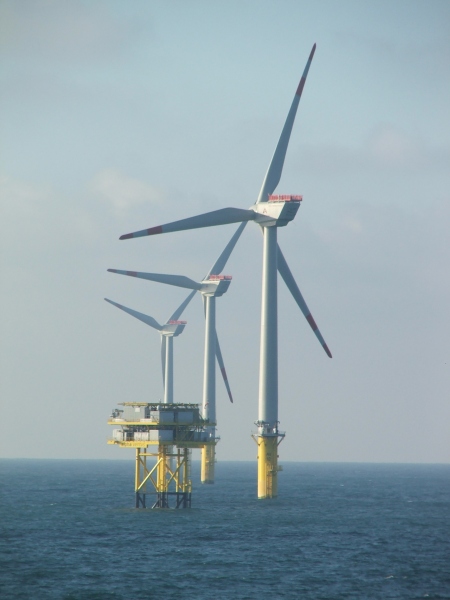Most UK oil workers would consider switching to another industry – and, if given the option to retrain, more than half would choose to work on renewable energy, a survey published today shows.
The survey blasts a hole in the argument by trade union leaders that every last drop of oil must be produced, supposedly to preserve jobs. Actually, workers are

Let’s go! Wind turbines, with an electricity sub-station, in the North Sea (German sector). Photo: SteKrueBe / Creative Commons
ready to move away from fossil fuel production – as long as they can work and their families don’t suffer.
The 1383 offshore workers who responded to the survey crave job security, above all. Nearly half of them had been laid off or furloughed since oil prices crashed in March.
Many complained about precarious employment and the contract labour now rife on the North Sea.
The survey, Offshore: oil and gas workers’ views on industry conditions and the energy transition, was put together by Platform London, Friends of the Earth Scotland and Greenpeace.
The survey’s authors seem to be the first people who have actually asked workers what they think.
The Scottish government has a comfortably-funded Just Transition Commission, including trade union chiefs, that recently ran a consultation on its interim report.
But it was campaign groups, working with activists on the ground, who bothered to talk to offshore workers.
The survey, distributed via social media and targeted advertising, garnered 1546 responses. The results excluded replies by 163 people who work in midstream or Read the rest of this entry »



 Posted by Gabriel Levy
Posted by Gabriel Levy 
